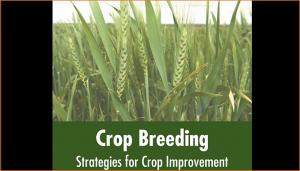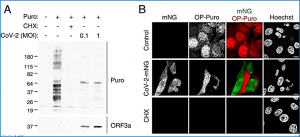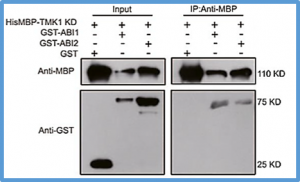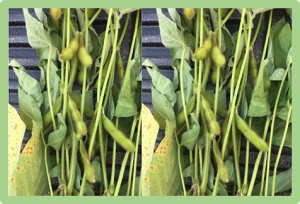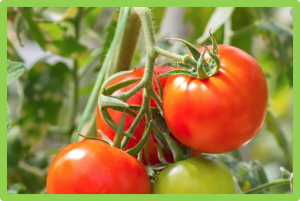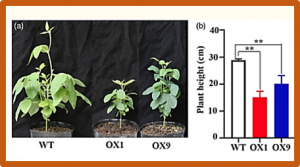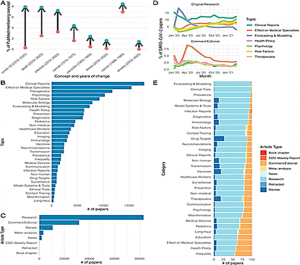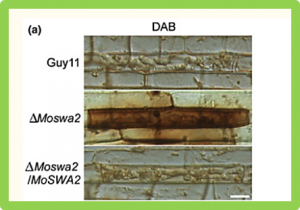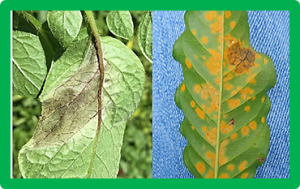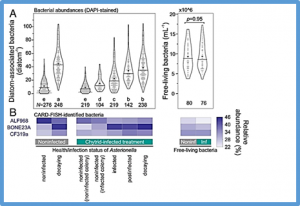Major global crops in high-yielding, temperate cropping regions are facing increasing threats from the impact of climate change, particularly from drought and heat at critical developmental timepoints during the crop lifecycle. Research to address this concern is frequently focused on attempts to identify exotic genetic diversity showing pronounced stress tolerance or avoidance, to elucidate and introgress the responsible genetic factors or to discover underlying genes as a basis for targeted genetic modification.
The ongoing COVID-19 pandemic has caused an unprecedented global health crisis. Severe acute respiratory syndrome coronavirus 2 (SARS-CoV-2) is the causative agent of COVID-19. Subversion of host protein synthesis is a common strategy that pathogenic viruses use to replicate and propagate in their host. In this study, we show that SARS-CoV-2 is able to shut down host protein synthesis and that SARS-CoV-2 nonstructural protein NSP14 exerts this activity. We show that the translation inhibition activity of NSP14 is conserved in human coronaviruses. NSP14 is required for virus replication through contribution of its exoribonuclease (ExoN) and N7-methyltransferase (N7-MTase) activities.
Differential concentrations of phytohormone trigger distinct outputs, which provides a mechanism for the plasticity of plant development and an adaptation strategy among plants to changing environments. However, the underlying mechanisms of the differential responses remain unclear. Here we report that a high concentration of auxin, distinct from the effect of low auxin concentration, enhances abscisic acid (ABA) responses in Arabidopsis thaliana
The search for high-yielding genotypes and that are tolerant to abiotic stresses has been a major goal in plant breeding. Thus, the use of technologies such as precision agriculture associated with remote sensing tools for plant phenotyping has increased. The hypothesis of this research was that soya bean genotypes respond differently to low and adequate base saturation levels in the soil and that vegetation indexes can be efficient auxiliary tools in plant phenotyping for this purpose.
The CRISPR/Cas‐mediated genome editing technology has been widely applied to create knockout alleles of genes by generating short insertions or deletions (indel) in various plant species. Due to the low efficiency of homology‐directed repair (HDR) and difficulties in the delivery of DNA template for HDR, precise genome editing remains challenging in plants. A tandem repeat‐HDR method was developed very recently for sequence replacement in rice, which is most useful for monocots
MYB transcription factors (TFs) have been reported to regulate the biosynthesis of secondary metabolites, as well as to mediate plant adaption to abiotic stresses, including drought. However, the roles of MYB TFs in regulating plant architecture and yield potential remain poorly understood. Here, we studied the roles of the dehydration-inducible GmMYB14 gene in regulating plant architecture, high-density yield and drought tolerance through the brassinosteroid (BR) pathway in soybean.
The SARS-CoV-2 pandemic has caused a surge in research exploring all aspects of the virus and its effects on human health. The overwhelming publication rate means that researchers are unable to keep abreast of the literature. To ameliorate this, we present the CoronaCentral resource that uses machine learning to process the research literature on SARS-CoV-2 together with SARS-CoV and MERS-CoV. We categorize the literature into useful topics and article types and enable analysis of the contents,
Plant pathogens exploit the extracellular matrix (ECM) to inhibit host immunity during their interactions with the host. The formation of ECM involves a series of continuous steps of vesicular transport events. To understand how such vesicle trafficking impacts ECM and virulence in the rice blast fungus Magnaporthe oryzae, we characterised MoSwa2, a previously identified actin-regulating kinase MoArk1 interacting protein, as an orthologue of the auxilin-like clathrin uncoating factor Swa2 of the budding yeast Saccharomyces cerevisiae.
Plant disease outbreaks are increasing and threaten food security for the vulnerable in many areas of the world. Now a global human pandemic is threatening the health of millions on our planet. A stable, nutritious food supply will be needed to lift people out of poverty and improve health outcomes. Plant diseases, both endemic and recently emerging, are spreading and exacerbated by climate change, transmission with global food trade networks, pathogen spillover, and evolution of new pathogen lineages. In order to tackle these grand challenges, a new set of tools that include disease surveillance and improved detection technologies including pathogen sensors and predictive modeling and data analytics are needed to prevent future outbreaks.
Microbial interactions in aquatic environments profoundly affect global biogeochemical cycles, but the role of microparasites has been largely overlooked. Using a model pathosystem, we studied hitherto cryptic interactions between microparasitic fungi (chytrid Rhizophydiales), their diatom host Asterionella, and cell-associated and free-living bacteria. We analyzed the effect of fungal infections on microbial abundances, bacterial taxonomy,


 Curently online :
Curently online :
 Total visitors :
Total visitors :
